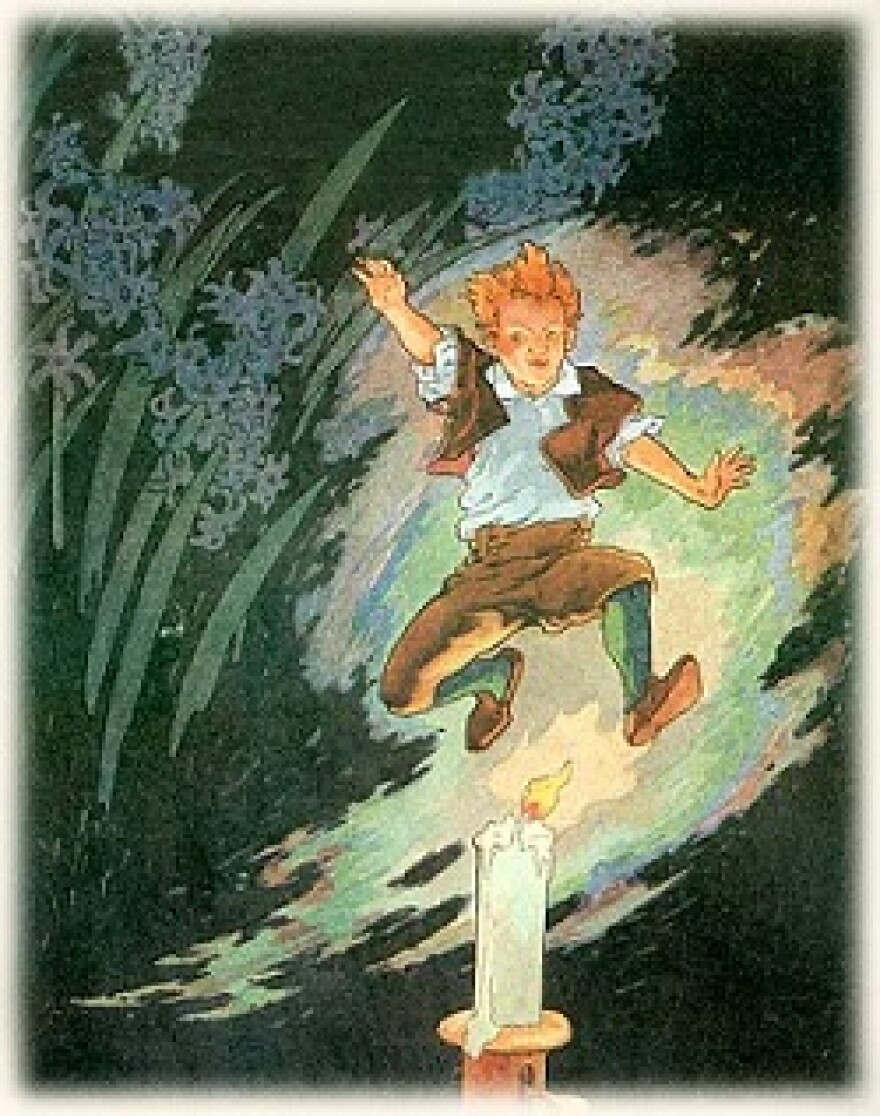The simple rhymes and songs we know courtesy of Mother Goose weren’t actually written for children. For the most part, nursery rhymes were composed by peasants in an exercise of solidarity. Themes in these rhymes range from infanticide to political treachery, and when you find out what most of these poems are really about, it can be downright scary.
In honor of Halloween, here are six nursery rhymes decoded.

Peter Peter Pumpkin Eater
Peter, Peter, pumpkin-eater
Had a wife, and couldn't keep her.
He put her in a pumpkin shell,
And there he kept her very well.
This rhyme is pretty straightforward in its creepiness. Here’s what University of North Texas English Professor Justin Jones had to say about it.
“The gist of it is, that he is an overbearing man who needs to find a way to control the appetites of his wife, suggested that they were sexual appetites, by more or less keeping her his own personal prisoner,” says Jones.
There are also several older version that have additional verses that Jones said wouldn't make any sense in 2014.

Jack Be Nimble
Jack be nimble,
Jack be quick,
Jack jump over
The candlestick
According to various scholars, jumping over the candlestick originated from an ancient pagan tradition of leaping over fires.
The goal was to jump over the lit candle without snuffing it out. This was supposed to bring good fortune.
This rhyme also has additional verses.

Ring Around The Rosy
Ring around the rosy
A pocketful of posies
"Ashes, Ashes"
We all fall down
This charming little rhyme is popular with young children who chant it, holding hands and walking in a circle. Most children then sit down at the song’s crescendo.
Historians agree that this rhyme has its origins in the bubonic plague. Symptoms included a red rash in the shape of a ring on the skin. Pockets and pouches were filled with sweet smelling herbs (or posies) which were carried because people believe the disease was transmitted by foul odors. “Ashes Ashes," refers to the cremation of bodies and “We all fall down” is a euphemism for the staggering death rate.

Mary Mary Quite Contrary
Mary, Mary, quite contrary
How does your garden grow?
With silver bells and cockleshells
And pretty maids all in a row.
It’s pretty much agreed upon that the “Mary” in this poem is Mary Tudor, or Bloody Mary. She tried to revert back to the Catholic church as soon as she took the throne and apparently burned religious heretics on the regular.
She also executed and tortured them by other means. Some scholars say “silver bells” stood for thumb screws and that "cockle shells" was known as a genital torture device. The pretty maids in a row stood for the people lining up to be executed by the guillotine. Most people think the “garden” was the cemetery.

Humpty Dumpty
Humpty Dumpty sat on a wall,
Humpty Dumpty had a great fall.
All the king's horses and all the king's men
Couldn't put Humpty together again
Humpty Dumpty is usually illustrated as an egg, but historians think he was actually a deadly cannon. During a British civil battle, Humpty Dumpty was seized by the opposing side. When soldiers tried to use the cannon, the loyal weapon shattered. And “all the king's horses and all the king's men, couldn't put Humpty together again.”

Here We Go Round The Mulberry Bush
Here we go round the mulberry bush,
The mulberry bush,
The mulberry bush.
Here we go round the mulberry bush
So early in the morning.
According to a prison warden, a lock-up in Wakefield, England, inspired this song. Once women were added to the population, it’s believed female inmates would sing it while they exercised with their children around a central mulberry bush in the prison yard.





